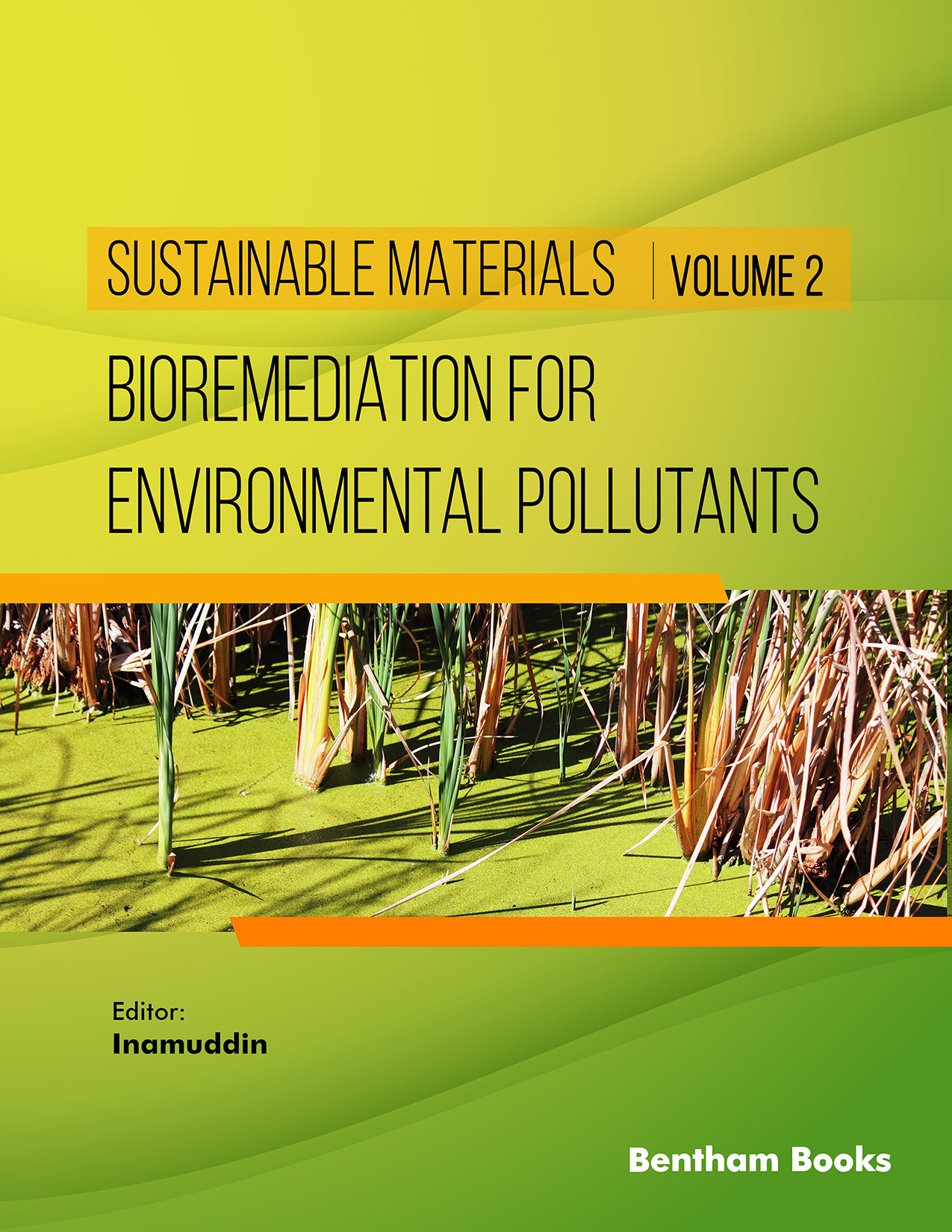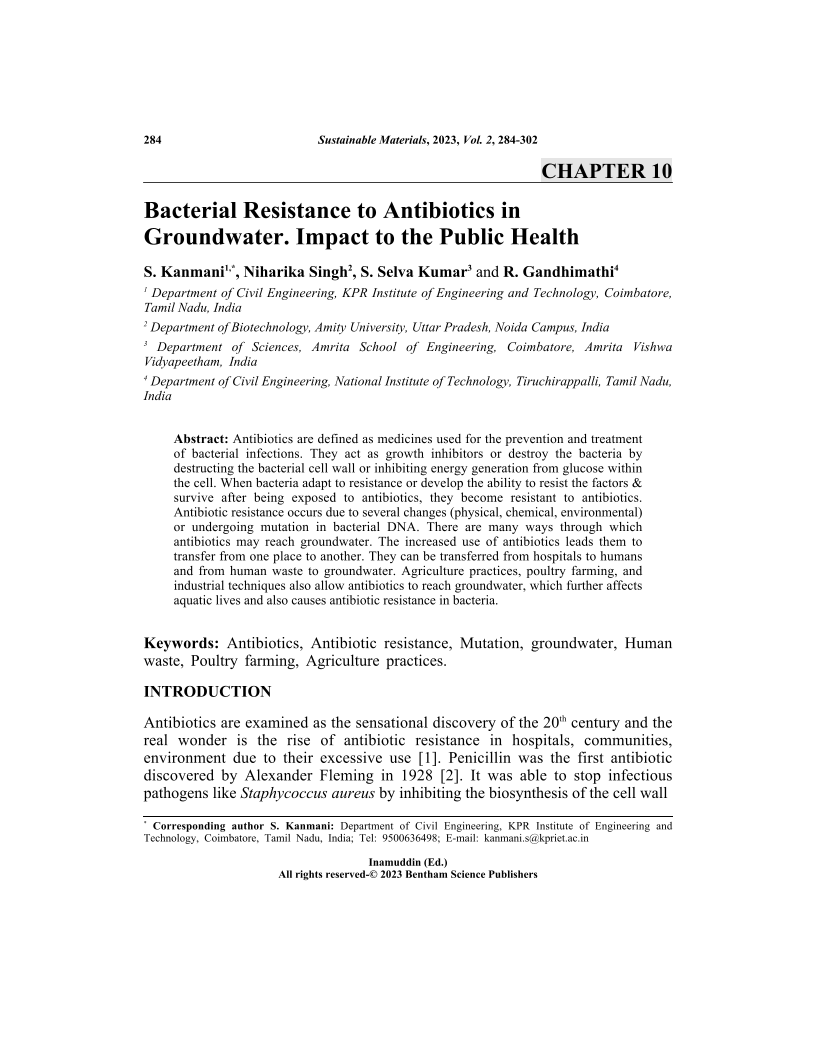Bacterial Resistance to Antibiotics in Groundwater. Impact to the Public Health

- Authors: S. Kanmani1, Niharika Singh2, S. Selva Kumar3, R. Gandhimathi4
-
View Affiliations Hide Affiliations1 Department of Civil Engineering, KPR Institute of Engineering and Technology, Coimbatore, Tamil Nadu, India 2 Department of Biotechnology, Amity University, Uttar Pradesh, Noida Campus, India 3 Department of Sciences, Amrita School of Engineering, Coimbatore, Amrita Vishwa Vidyapeetham, India 4 Department of Civil Engineering, National Institute of Technology, Tiruchirappalli, Tamil Nadu, India
- Source: Bioremediation for Environmental Pollutants , pp 284-302
- Publication Date: June 2023
- Language: English
Bacterial Resistance to Antibiotics in Groundwater. Impact to the Public Health, Page 1 of 1
< Previous page | Next page > /docserver/preview/fulltext/9789815123524/chapter-10-1.gif
Antibiotics are defined as medicines used for the prevention and treatment of bacterial infections. They act as growth inhibitors or destroy the bacteria by destructing the bacterial cell wall or inhibiting energy generation from glucose within the cell. When bacteria adapt to resistance or develop the ability to resist the factors & survive after being exposed to antibiotics, they become resistant to antibiotics. Antibiotic resistance occurs due to several changes (physical, chemical, environmental) or undergoing mutation in bacterial DNA. There are many ways through which antibiotics may reach groundwater. The increased use of antibiotics leads them to transfer from one place to another. They can be transferred from hospitals to humans and from human waste to groundwater. Agriculture practices, poultry farming, and industrial techniques also allow antibiotics to reach groundwater, which further affects aquatic lives and also causes antibiotic resistance in bacteria. <br>
-
From This Site
/content/books/9789815123524.chapter-10dcterms_subject,pub_keyword-contentType:Journal -contentType:Figure -contentType:Table -contentType:SupplementaryData105

